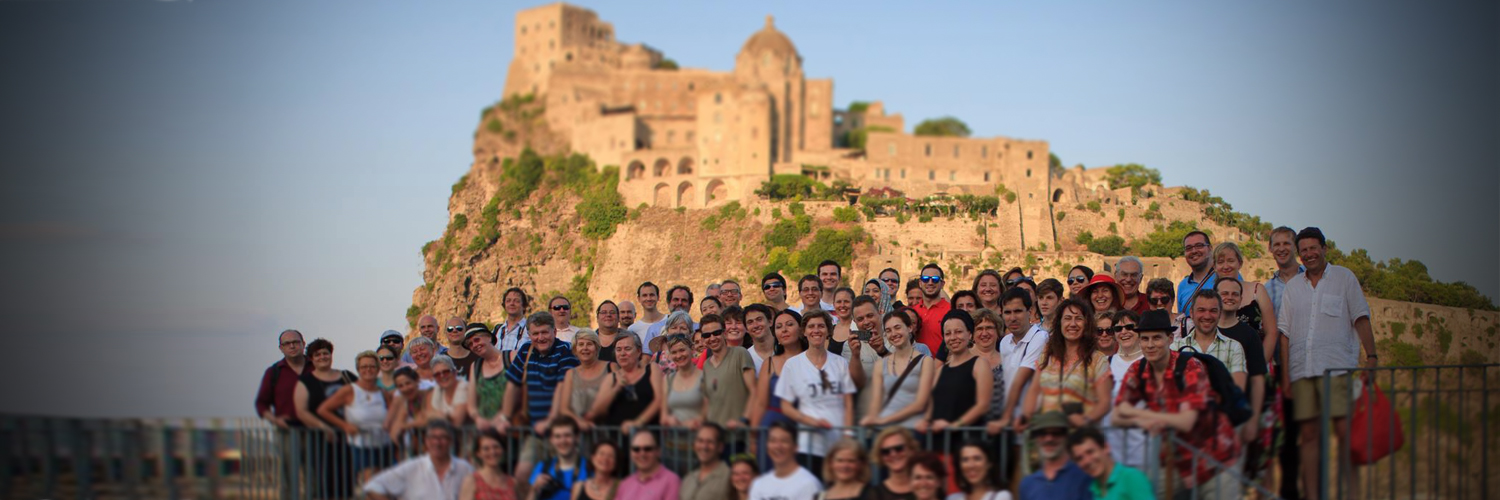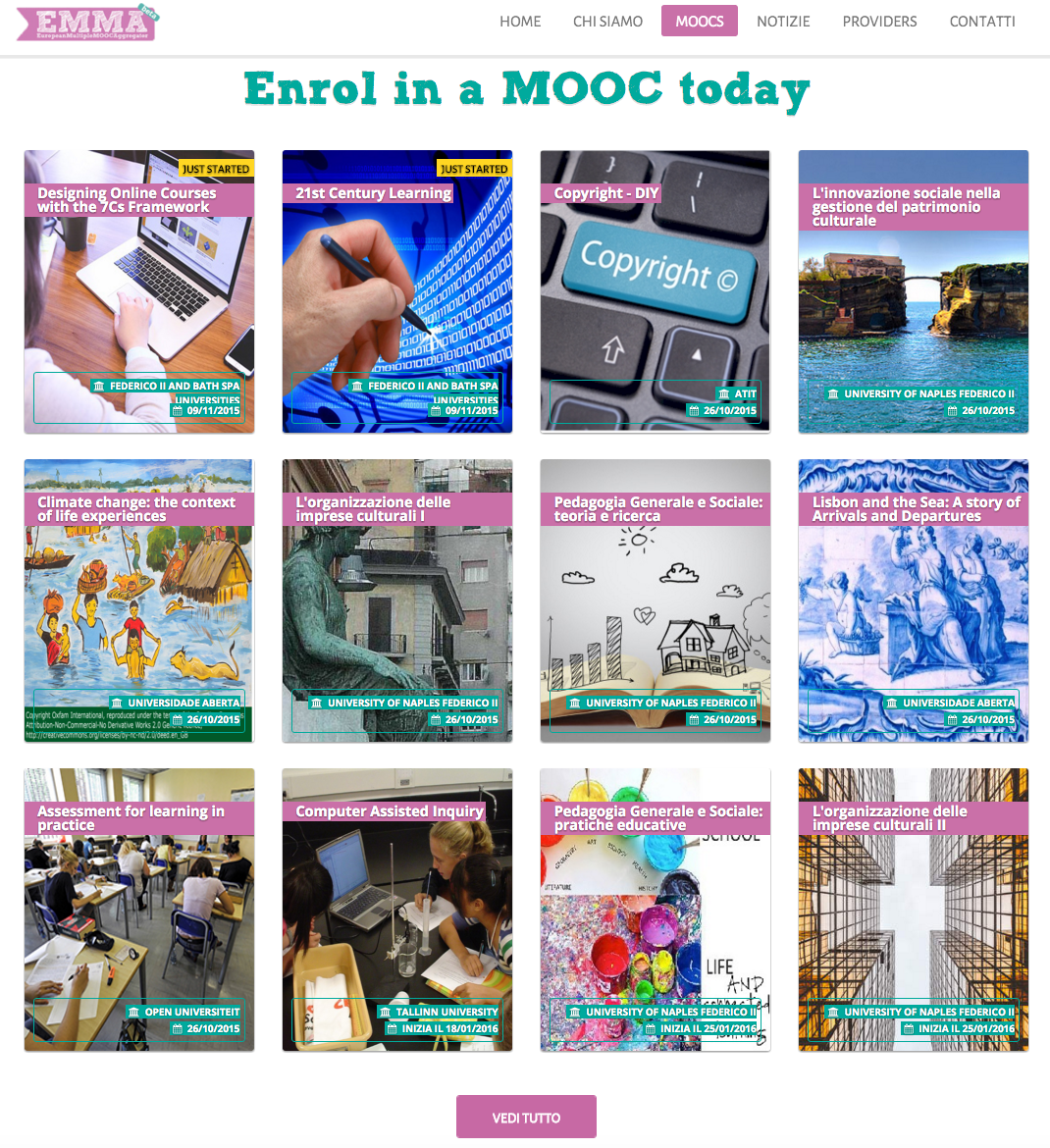EMMA: digitally educating to digital
The University of Naples Federico II and the European Association in TEL (Technology Enhanced Learning) organized a summer school dedicated to reflecting on the role that MOOC design and production techniques and advanced technologies for education play in creating opportunities for students and for the learning process.
Two specific projects - Federica web learning, the open access platform of the Federico II University, and Emma, the european experimentation about a Multiple MOOC Aggregator - have been the starting point to share ideas and innovations about the future of e-lerning.

Let's talk about it with Rosanna De Rosa, coordinating the Emma project.
Prof. De Rosa, let's start from the projects: Emma and Federica, what are they, who do they reach to and what is their goal?
They are twin projects. Federica was born in 2007 to promote open access to academic teaching through the production of online courses. With Federica.eu, the web-learning platform evolved towards Massive open online courses. Now it offers approximately 300 courses, and over 40 of them as MOOC. Federica today is also a University Center directed by prof. Mauro Calise. Emma, on the other hand, is the aronym for European Multiple Mooc Aggregator: it is a young project, but with a wide partnership, targeting a multilingual MOOC offering. Today EMMA offers 25 MOOCs in 8 languages, and several advanced services.
Designing and creating MOOCs, learning advanced technologies for teaching, open resources and social media, game-based learning… the summer school addresses many themes. Which "learning outcomes" will your students bring home, and which does the organization get?
The main outcome is about synergy between theory and practice, between pedagogical approach and factual realization: a model in which every teaching innovation is useful only as long as it considers a realization context and it proves itself in cultural and linguistic peculiarities .
The Massachusetts Institute of Technology (MIT) announced a short time ago that starting from February it will be possible to attend on-line the first semester of one of its masters, usually a traditional in-campus one. The online attendance will provide a certificate and will allow the most successful students to access the selection for the actual master course. How will this impact the world of digital - and non-digital - education?
Without a doubt, this is a hybrid model for academic education which is going to have interesting results in the near future. First because it drastically cuts a part of the initial costs, second because it allows young people to get a complete idea of the course before making the final choice and so spending the resources provided by the family. I'm sure that such a blended learning model is the key to take MOOCs out of their apparent destiny as a parallel market.
How can e-learning change the academic system? Do you envision an integration with traditional models or rather a progressive substitution?
As sai before, educational systems are more and more oriented towards a blended approach, offering hybrid paths and only rarely alternate to the traditional ones.
Which are the main challenges for those working in the field of technology for education?
Sustainability of activities is with no doubt the greatest challenge. Then you have to remember that a pen is technology too and technology not necessarily equals innovation. Durable innovations, the sustainable ones which also give the best results, are innovations about processes and organization.
Remote teaching has the great benefit of guaranteeing low costs, flexibility and accessibility but it usually records a high abandon rate, because the feeling of community is missing. Can social tools be a solution to get back the discussions among students which are such an important part of the formative process?
Social media represent a valid help for students engagement in the frame of educational processes, but of course this can always be true - regardless of abandonment rates and distance learning.
In this sense, can Open Badges and a platform such as Bestr help in creating the community feeling?
I suppose they can.
How did your interest in Bestr riser?
It was because of the Open Badges and the chance to experiment with certificates as a stimulus to complete the course.
For those who took part in "JTEL – EMMA Ischia Summer School 2015" what's the added value given by the chance to certify and share the learned competences with Open Badges?
It is a chance to make one's curriculum and personal profile more effective.
